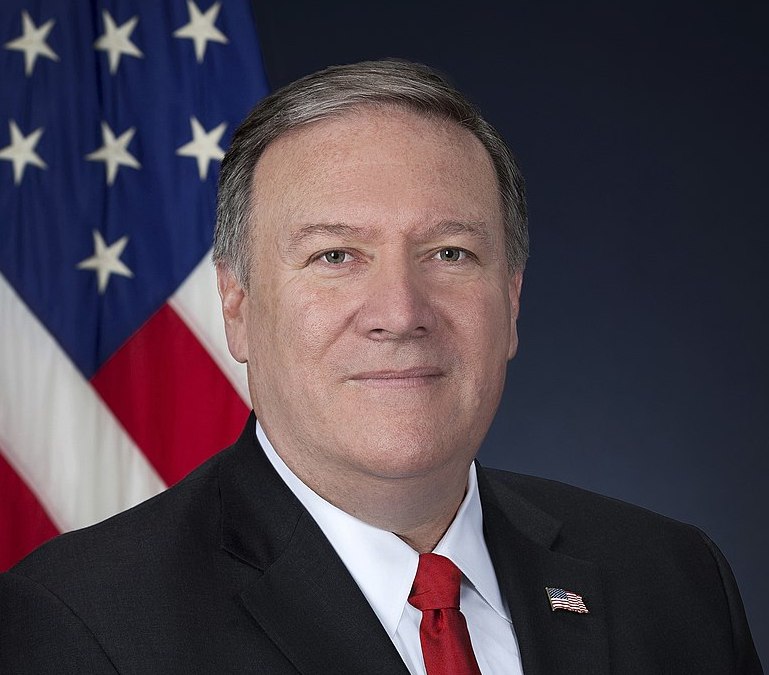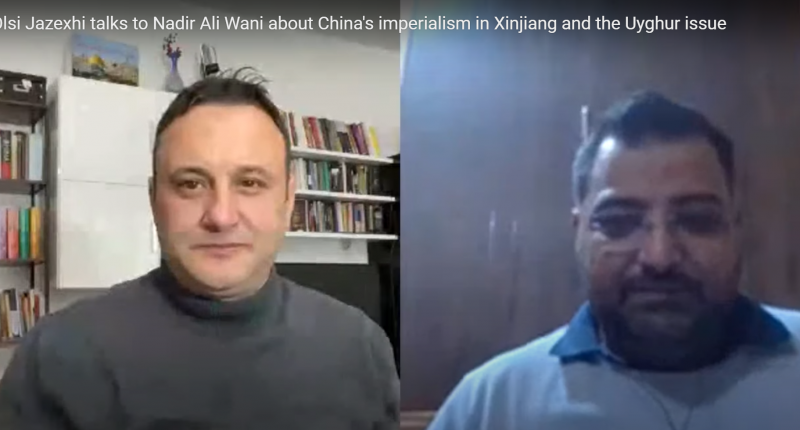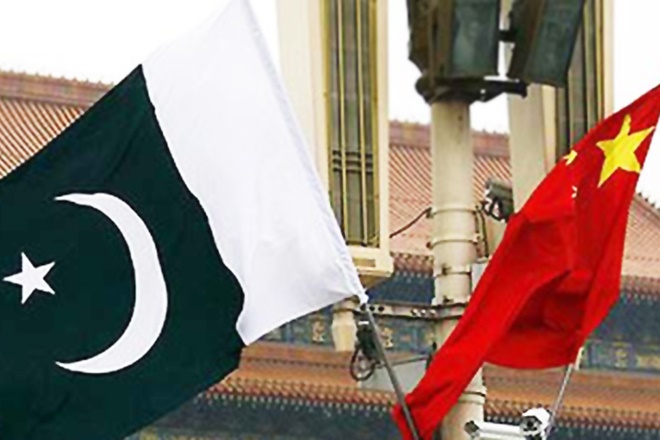Dr. Olsi is an Albanian historian, specializing in the history of Islam, nationalism and modernity.
Nadir Ali Wani is a frequent contributor to The Taiwan Times based in Srinagar, the capital of Jammu and Kashmir.
In this transcript of a recent interview with Dr. Olsi, they look at China’s Belt & Road project and its implications for India, Pakistan and the wider Anglo-American world.
They first discuss the silence of the Muslim World towards the Uyghur issue, and seemingly contradictory support that the Evangelical anti-Muslim government of the United States gives to the Muslims of China.
The Taiwan Times made the decision to release this transcript – only with minor edits for clarity – out of respect for the English used by Dr. Olsi, and to leave it as close as possible to the original.
This is Pt. II of the transcript. Pt. I is here.
(cont. from November 18th)
Nadir Ali: Are you suggesting these youths are brought in here (to the camps) for brainwashing to impose ideology by the state?
Dr. Olsi: Yes, they are forcibly (brought here). Let’s say if India (were) to invade a Chinese province and they will take Chinese youths and put them in concentration camps and force them to speak Hindi and be Hindus, (that) would be outright fascism, (and) this is exactly what China is doing.
When I was in Xinjiang and when I saw what Chinese were doing to Muslims I told them there is no difference between (China and the) Taliban and Al-Qaeda.
The Taliban and Al- Qaeda do (this) because they either kill them or forcibly convert them into Islam.
I told them you are exactly like them, but you are doing the opposite – you are forcibly (removing) Islam in this province.
What China is doing in Xinjiang, apart from brainwashing, is jailing and (removing the Islam from) the Muslims. On the other hand it is mass colonizing Xinjiang (with) Han Chinese colonists who are brought in from other places or regions of China in order to change the demographics of the Muslim majority province of China.
What is (happening) right now in Palestine (when) we see Jewish colonies where (they) capture Palestinians and Jewish communists (is the same).
Nadir Ali: So Dr. you are trying to say what the Taliban do, the Chinese are also doing with the Uyghur Muslims?
Dr. Olsi: Yes, (but the) Chinese are much more aggressive, powerful, and more sophisticated then the Taliban and Al-Qaeda.
I mean China is a totalitarian state at its extreme.
In India, in Albania, in Europe, we live in open and democratic societies.
You have free media in your country like we have (in Albania).
Of course, most of the media support (the) ruling party, we understand the political interests.
But we have freedom to speak you have freedom to protest (Indian Prime Minister) Modi and whatever.
But in China you don’t have that.
China is a totalitarian regime
Nadir Ali: Would you say this is a systematic attack to eliminate an ethic race from China?
Dr. Olsi: For Historical and political reasons there was no foreign power who had interests in Xinjiang.
(Why) in Europe (do) we know about the Kashmir issue but we don’t know about (the) Uyghur issue – because Pakistan had political issues in Kashmir.
But Pakistan never (had) political interests towards the Uyghurs or east Turkestan and moreover because Pakistan was never politically or military threatened by China but instead it was ‘corrected’ by China.
China is a major ally in the confrontation against India.
We know and we here about the Kashmir issue.
The other thing In India (is that) you have relatively good freedom of movement and information (so) we know what happens in Kashmir (and) what Modi does.
You have free media in India. You live open societies (where) you can get basic information.
China is very good at hiding its Muslims.
The situation with its minorities (exists) because it is a totalitarian state when it comes to Islamic countries (but) I just want to tell you this is myth (as) there are no Islamic countries (although) we have some countries who have adopted Islam as their national identity.
We have Pakistan, Iran, Turkey.
But if we see the tutorial Arab regimes of the Gulf like Saudi Arabia, the United Arab Emirates – these people hate Islam.
When we were in Xinjiang some of the prisoners, we interviewed were ladies (and) they had put on a hijab.
(But) only by the wearing (of a) hijab they were declared extremists and were sent to concentration camps.
We had two journalists (in our group) – one was from (Saudi) Arabia, other from (was from) the United Arab Emirates (and) they both were wearing hijab.
When these ladies saw this, they started crying.
I (asked) them when we (return to) our respective countries (if they were) going to say anything about it?
They replied no, (so I asked) them why?
They replied we are not allowed to do that because we don’t have democracy, (and) we don’t have open societies in countries like Saudi Arabia, (where we) are not allowed to speak about this. If (we) speak about this (we will) end up in jail.
Nadir Ali: Does members (nations) of the Organization of Islamic Cooperation (OIC) in a way act as facilitators for the effective use of violence and cultural genocide against Uyghur Muslims in China?
What is your stand on this?
Dr. Olsi: Yes. Today I just commented on my Twitter account (about) the report Ali Obaid Dhaheri, who is the ambassador of (the) United Arab Emirates in China (made).
His report on China (is) praising Chinese authorities and claiming things going very well.
I asked him, why don’t you report anything about the situation of state terror of Chinese against Muslims in Xinjiang.
My rhetorical reply to him was (that is) what we can expect from the (people who) sold Palestine to Israel.
Nadir you must understand something – this Arab regime, they are totalitarian (and) they don’t want their people, they don’t want Islam, they sold Palestine.
They recognized (the) Israeli occupation of Jerusalem (so) how do you expect these people to cry and to feel and to speak about Uyghur Muslims.
They don’t want their own Arab Muslims.
I mean, many of these regimes like in Bahrain, the UAE, Sudan, they are totalitarian regimes (just) like (the) Chinese.
When they look at China, when they look at Xinjiang they look at their brothers because China offers (to aid) any dictatorship in the world who want to (be) allies (with) China.
Chinese go to these countries and offer them high technologies to control and monitor (their) people, money, weapons – all so (long as) these dictators don’t speak against China.
They don’t care about (the) Muslims of India, the Xinjiang Muslims you know how they mistreated Muslim immigrants from India when they (go to) and work in Saudi Arabia, and many of these countries.
Why should they care about Uyghur Muslims?
Nadir Ali: What do you think the reason for the West being silent is? It is unlike their position on the question of Tibet, Taiwan, and Hong Kong?
Dr. Olsi: I don’t think the West is silent, from the information that I have, because it is taking time for Western governments to reflect.
Nevertheless, the Western governments (have) sent the letters to the UN against China.
The EU parliament has a resolution on China.
I was invited to (the) European Parliament to give my own testimony.
(And then) we have the American government which for some political reasons is where the real politics come into being.
You have a fundamentalist’s evangelical government in the United States led by Secretary Mike Pompeo.

These people they are not secular.
Evangelical Christians are siding with the Uyghurs.
(but) why (are) Mike Pompeo and (President Donald) Trump doing this? Because they love Muslims? They don’t!
Americans have bombed and killed Uyghur Muslims in Syria, but in China they are siding with them.
Is the human rights (interest) because the Americans know perfectly well what is going on?
They are very sophisticated (and) they know how China is mass assimilating and destroying them.
But the Americans who are raising their voice and, in a way, supporting many Uyghur NGOs and Uyghur activists are not doing it in the name of Jesus Christ or of Allah and Mohammad (PBUH).
They are doing it in the name of American imperialism because what we (are) witnessing today in central Asia is a big clash between Anglo-American Imperialism (on the one hand) and Chinese Imperialism on the other hand.
And I want your viewers to understand something that the conflict over Xinjiang is the conflict over the future of Chinese Imperialism.
When I was in Xinjiang, in every state institution that we went in, every museum the Chinese government is propagating the ‘one road and one belt’ project.
What is this project?
What Anglo-Americans did with cannons and with invasions and battles over the last 200 to 300 years (left a) product – (which includes) even you and I.
We are speaking English to each other. We are not speaking Albanian or Hindi, so the Anglo-Americans achieved something in the last 200 to 300 years.
The Chinese are trying to endure or achieve (something) through (their) road and belt project.
Chinese know very well that one day the Anglo-Americans might close (down) the (East) China Sea.
The Anglo-American are doing all they can to push all the neighbouring countries of China against China.
India, Japan, the issue of Tibet, Taiwan, the Philippines, and Malaysia, they are all siding against Chinese Imperialism.
But what the Chinese are doing in return is that they are dethroning the Muslim population of Xinjiang.
They are building this huge highway which (is projected to) starts from Beijing and end at Istanbul.
They are bribing the Pakistanis and asking them (to) be quiet (and) we will give money (so) you allow us to expert the goods.
This is even the reason of the border clash between India and China.
The Chinese are advancing their imperialistic push through (the) Himalayas through central Asia.
They are trying to rebuild (the) Silk Road and to penetrate through these roads and rivals.
The Chinese (have) not been very successful like the Ancient Greeks who built colonies though out their (known world) by using the sea.
They are not good (on) the (ocean) (but) they are good on the road.
If I conclude our discussion about the Uyghur issue or the issue of Muslims of Xinjiang – they (are) at the heart of a big clash (between) two imperialism’s; Anglo-Imperialism on one hand, and Chinese imperialism on the other hand, and here we have second hand players like India, like Pakistan, like the Taliban, like Japan – (all of whom) are being used in this major battle between these two (forms of) imperialism.
This is the reason we have a fundamentalist American administration who talks and speaks about Muslims of Xinjiang.
Because Trump loves the believers of Allah and Mohammad.
It is real politics.
About the author: Nadir Ali Wani is a resident of Hawal in Srinagar, the capital of Jammu and Kashmir.
He holds a Masters’s degree in Conflict Studies and International Relations from Jawahar Lal Nehru University, New Delhi.
Mr. Ali has an abiding interest in the study of conflicts in South Asia with a particular interest in international politics to do with China, Islam, and Kashmir.
He worked as a Research Assistant to Professor Amitabh Mattoo at JNU, New Delhi while conducting dialogue with various members of society, and with the Kashmiri leadership.
He is a prolific writer to date published across Europe, the USA, Indonesia, Taiwan and elsewhere. Mr. Ali is currently Director of the Center for Peace and Justice, a research-based group in Srinagar, which is a non-profit organization known for its efforts in youth development in Kashmir.
He has no political affiliation.
The full interview can be seen here.
Edited by Lisa Conklin.











Comments are closed.